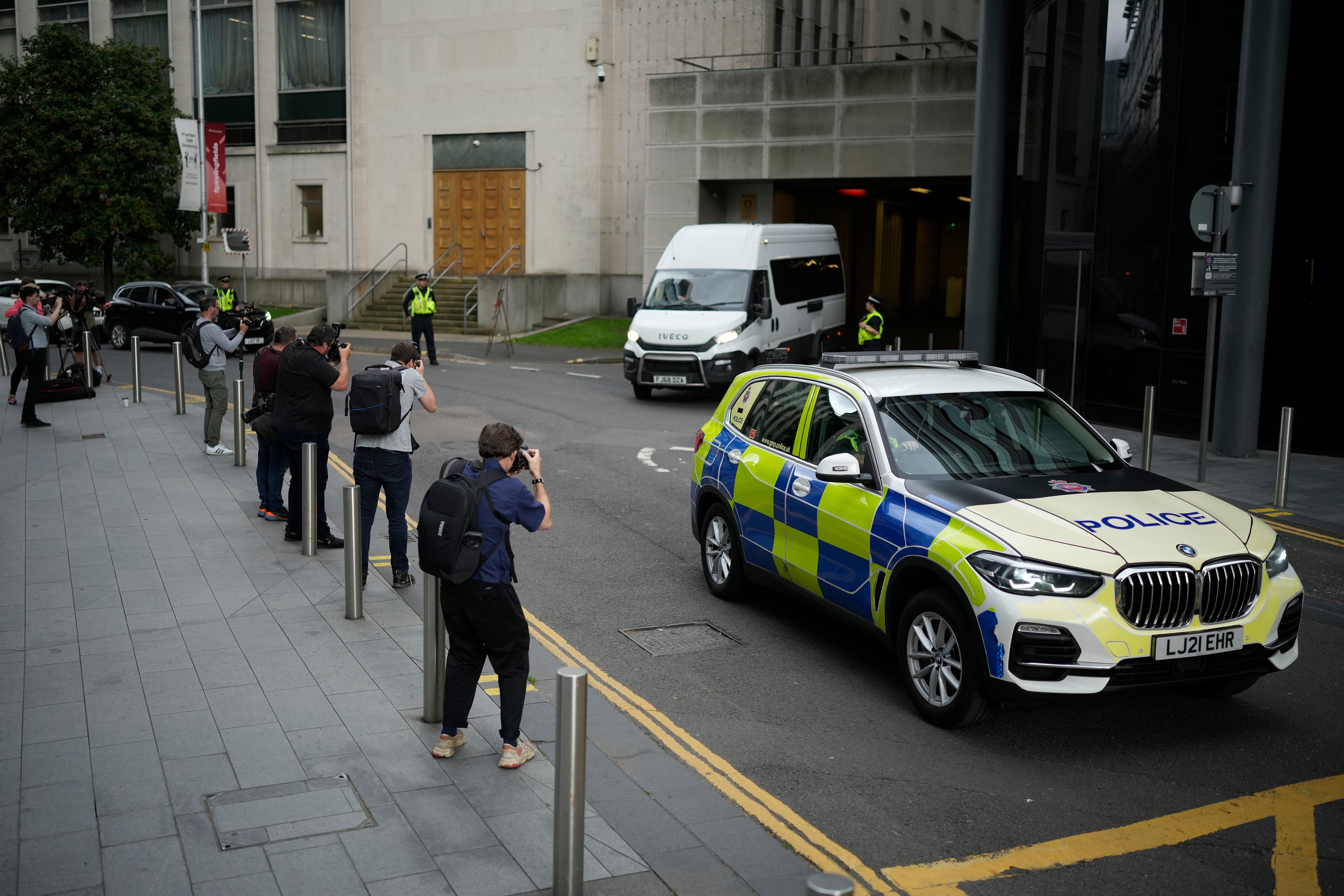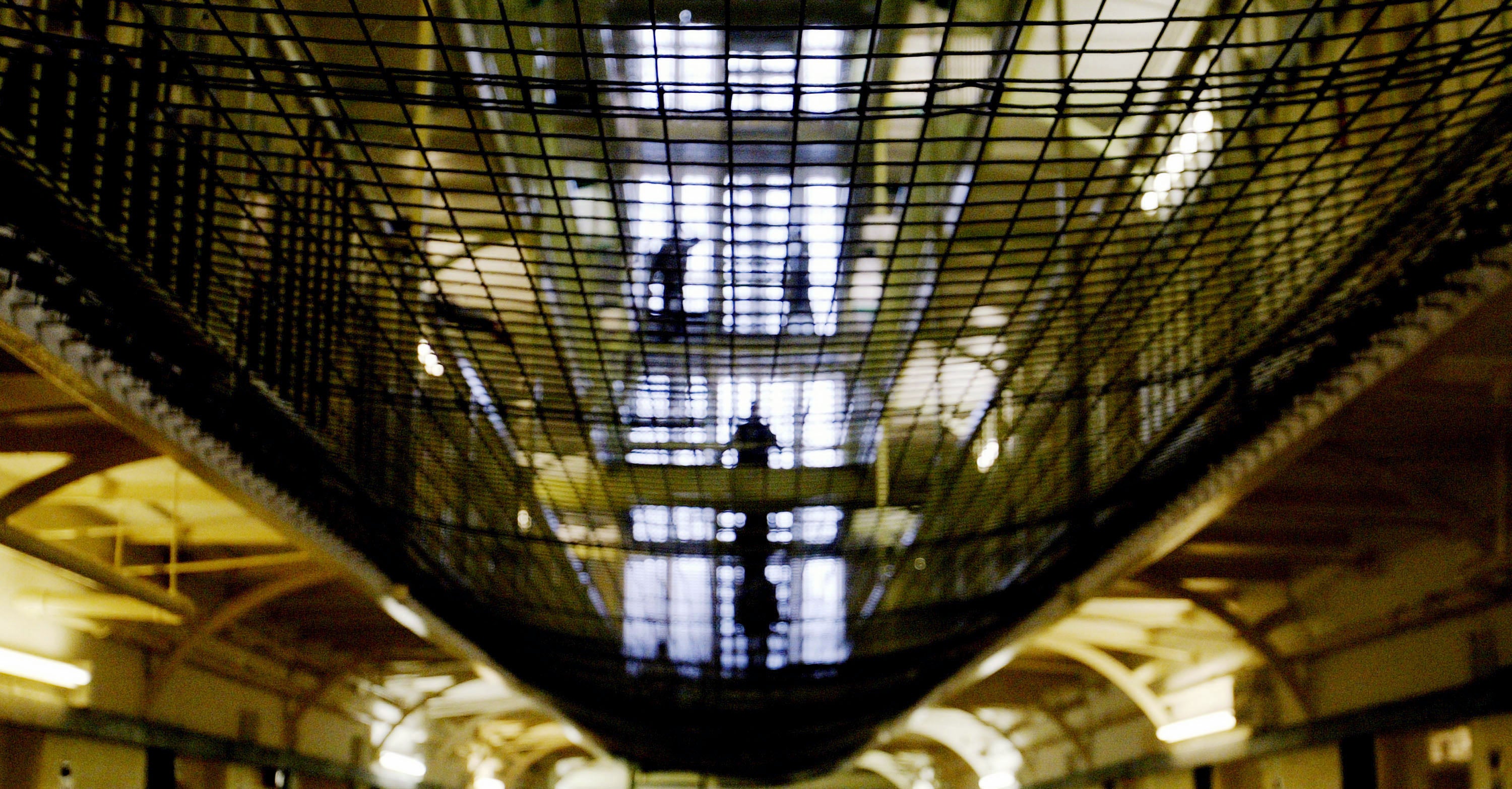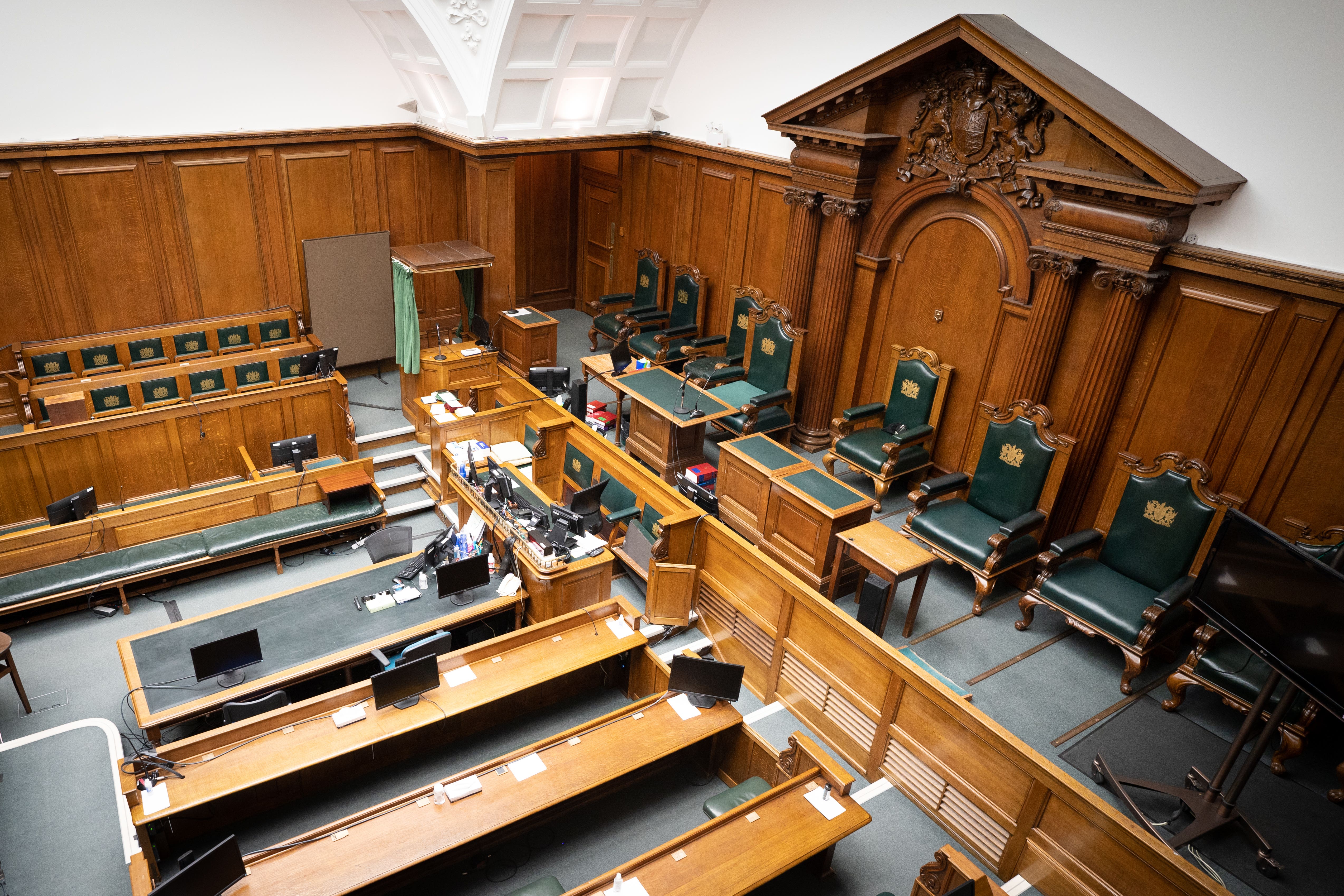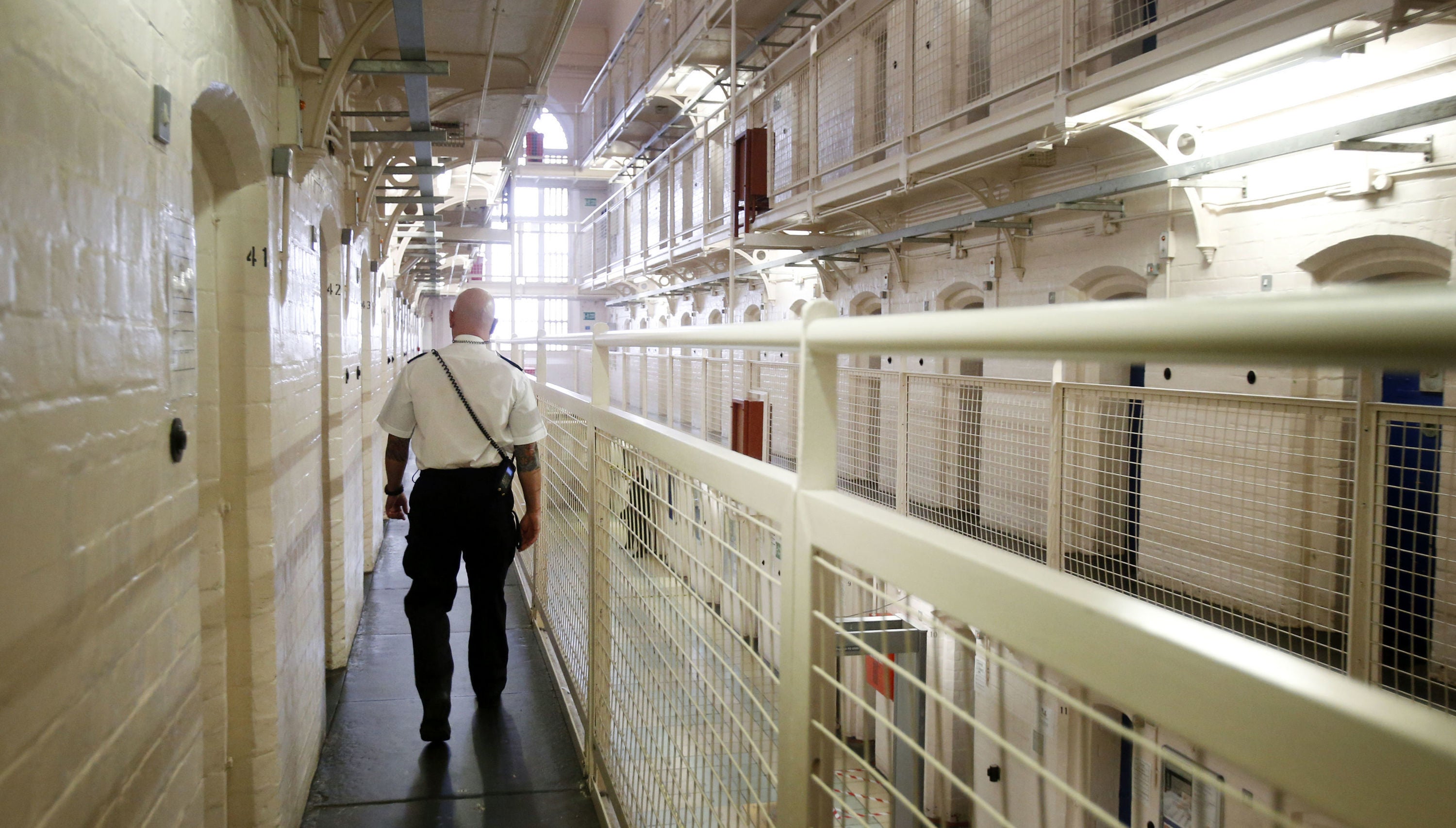Record number of trials adjourned over failure to bring suspects from prison to court
Exclusive: Defendants stuck in custody vans miles from court while victims, witnesses, lawyers and police spend wasted hours awaiting them at ‘untold’ cost

Your support helps us to tell the story
From reproductive rights to climate change to Big Tech, The Independent is on the ground when the story is developing. Whether it's investigating the financials of Elon Musk's pro-Trump PAC or producing our latest documentary, 'The A Word', which shines a light on the American women fighting for reproductive rights, we know how important it is to parse out the facts from the messaging.
At such a critical moment in US history, we need reporters on the ground. Your donation allows us to keep sending journalists to speak to both sides of the story.
The Independent is trusted by Americans across the entire political spectrum. And unlike many other quality news outlets, we choose not to lock Americans out of our reporting and analysis with paywalls. We believe quality journalism should be available to everyone, paid for by those who can afford it.
Your support makes all the difference.A record number of trials have been adjourned at the last-minute because of failures to bring defendants from prison to court, The Independent can reveal.
These failures – linked to severe overcrowding in prisons – can delay proceedings for months at “untold” costs to the taxpayer, while “keeping juries waiting and increasing the anxiety of all concerned”, warned the Criminal Bar Association.
Their analysis of Ministry of Justice figures dating back to 2010 showed 58 trials were postponed because of no-shows or late deliveries of prisoners in the crown courts alone during the first three months of this year – 23 of which involved alleged violent and sexual offences, including rape.
This is the highest quarterly figure in records stretching back to 2010, having quadrupled since the same period in 2022. Further analysis by The Independent shows it is three times higher than the average in the decade to 2021, excluding 2020 when the pandemic halted in-person trials.
There were also 202 last-minute adjournments in magistrates’ courts, making it the worst quarter for five years. Both sets of figures do not include the number of additional failures to deliver defendants to pre-trial hearings, which are not publicly available.
Despite record court backlogs, “victims will bravely try to hold on for the two to three years it can take to get to court and live their lives in the permanent shadow of reliving what happened to them,” said former victims’ commissioner Dame Vera Baird.
“Then the chaos that this government had made of the criminal justice system deals them a final blow by getting them to court only for the prison system [to be unable to produce] the defendant.”
Warning that victims of sexual assault or serious violence “lose sleep for weeks before they are due to testify” and are quite likely to feel unable to go through such stress again, potentially waiting months for the case to be re-listed, Dame Vera added: “How is a victim to believe that the criminal justice system cares twopence for their wellbeing with this mess?”

The “damning” delays are symptomatic of chronic overcrowding and staffing problems within prisons, and “demonstrate a criminal justice system in crisis”, prison guards warned.
With the remand population soaring to an effective record high in the first quarter of 2023, with a fifth of the 10,000 people awaiting trial in prison trapped there for over a year, as reported last week by The Independent, defendants are being moved from bursting jails to others situated hours away from court.
A “national shortage” of prison escort staff and van drivers is also being exacerbated by the fact that police custody is being used as “an emergency alternative” to overcrowded jails, adding to the number of journeys required each day, warned Charlie Taylor, HM chief inspector of prisons.
“This challenge with getting prisoners to court on time is causing significant delays in courts across the country, and was our single biggest concern in a report on court custody facilities in Surrey, Sussex and Kent published earlier this month,” Mr Taylor said.
“To add to this, we are hearing of men refusing to go to court at all because they do not want to end up in a different prison at the end of the day because the original prison is now full up – they would rather face the wrath of the judge than the strain of settling into a new jail.”
The rise in delays comes as the number of completed trials fell by nearly a third in 2022, when 15,000 trials were successfully heard – compared with 21,546 the previous year, as the crown court backlog continues to hit new record highs of nearly 65,000 cases.
As a result, further delays due to the non-delivery of defendants are “the last thing” victims, defendants and witnesses need”, warned Law Society president Lubna Shuja.
Thirty-six of the 58 adjourned trials from January to March were in London – a failing the capital’s victims’ commissioner Claire Waxman lambasted as “simply unacceptable”.
Ms Waxman called for “swift action” to address the delays, by ensuring clear listing, good communication between courts and prisons, and better use of technology such as videolinks from prison, “whilst keeping victims of crime at the heart of these decisions”.
The official data does not show whether the private firms responsible for these custody escort services reported that the defendant had refused to attend, or whether they had simply failed to deliver them – which decides whether the firms are paid, or instead fined up to £500 for every 15 minutes of delay.
The Law Society calculated in 2018 that an average day in court cost the state just shy of £2,700 for staff, judges and building-related costs.
But the Criminal Bar Association warned this was “a tiny fraction of the actual hidden cost to the entire justice system”, with “untold” costs including the cost of police time attending court, further time spent in remand, and costly lawyer fees – with barristers not paid until trials conclude.

“Justice is becoming a victim of worsening prison escort services at a time when the criminal justice system is being held together by dedicated and highly trained criminal barristers and judges,” said the group’s chair Tana Adkin KC. “We are working hard to ensure that all the cases affecting witnesses, victims, defendants and their families reach a just conclusion as quickly as possible.
“Defendants not produced from custody or produced late from custody result in huge delays to court proceedings, keeping juries waiting and increasing the anxiety of all concerned in the process.”
The delays are “wholly inappropriate and a complete indictment of everything that is wrong in the criminal justice system”, said Steve Gillan, general secretary of the Prison Officers Association.
“There isn’t any single reason for this occurring and could actually be a number of things including prisoners refusing to go to court [and] overcrowding of prisons, with prisoners being displaced from courts in their area.
“Shortage of staff from private escorts and prisons also could be a contributory factor but it isn’t acceptable at all and government should be held accountable.”

Tom Franklin, chief executive of the Magistrates Association, warned of a “concerning” surge in adjournments in magistrates’ courts, with late deliveries among several challenges Justices of the Peace are “continually experiencing” at present.
The “chronic” staffing shortage across the system – “from lack of probation officers, which can delay the delivery of pre-sentence reports, to legal adviser shortages without which a court cannot sit at all” – “impact the efficiency and quality of justice”, said Mr Franklin.
Griff Ferris of charity Fair Trials warned that the “broken criminal legal system is denying justice to both victims and defendants”, with huge waits for trials involving those trapped on remand in overcrowded prisons fuelling “a mental health crisis, with record levels of self-harm and suicide”.
“People are being made to suffer these conditions because of the government’s shredding of court infrastructure and legal aid over the last decade, and its insistence on putting more and more people in prison,” he said.
A Ministry of Justice spokesperson said: “Over 99 per cent of the approximately 250,000 prisoners brought to court each year arrive on time and contractors face tough penalties if a defendant arrives late.”
“At the same time, we’re creating an additional 20,000 new prison places and pushing forward with measures to recruit up to 5,000 extra prison officers so that we can continue to lock up dangerous criminals and keep the public safe.”




Join our commenting forum
Join thought-provoking conversations, follow other Independent readers and see their replies
Comments